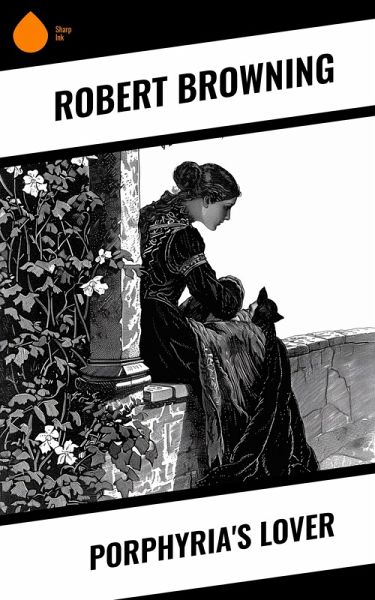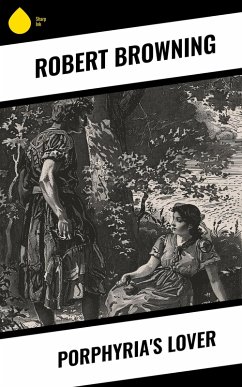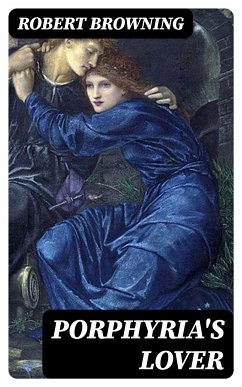
Porphyria's Lover (eBook, ePUB)

PAYBACK Punkte
0 °P sammeln!
In the dramatic monologue "Porphyria's Lover," Robert Browning masterfully explores themes of love, obsession, and madness through the voice of a nameless narrator recounting a fateful night with Porphyria, his lover. Browning's innovative use of enjambment and vivid imagery creates a sense of urgency and emotional intensity, drawing the reader into the complexities of desire and the moral ambiguities of their relationship. The poem is steeped in the Victorian context, which grapples with issues of class, gender, and the societal constraints that shape intimate connections, making it a signifi...
In the dramatic monologue "Porphyria's Lover," Robert Browning masterfully explores themes of love, obsession, and madness through the voice of a nameless narrator recounting a fateful night with Porphyria, his lover. Browning's innovative use of enjambment and vivid imagery creates a sense of urgency and emotional intensity, drawing the reader into the complexities of desire and the moral ambiguities of their relationship. The poem is steeped in the Victorian context, which grapples with issues of class, gender, and the societal constraints that shape intimate connections, making it a significant piece in Browning's oeuvre and the larger Gothic literary tradition. Robert Browning, a prominent figure in the Victorian era, was deeply influenced by his own tumultuous romantic life, which included his relationship with Elizabeth Barrett Browning, a fellow poet. The psychological depth of Browning's work can be traced back to his interest in human psychology and moral dilemmas, as well as his experiences with unorthodox love and social criticism. His brilliance in dramatic monologue as a form allows him to delve into the psyche of complex characters, capturing their internal struggles and motivations in striking detail. "Porphyria's Lover" is a compelling read for those fascinated by the intricacies of human emotion and the darker aspects of love. Browning's vivid storytelling and psychological insight invite readers to grapple with the poignant and often unsettling nature of obsession, making this poem essential for anyone interested in the exploration of human relationships and the darker corners of the human psyche.
Dieser Download kann aus rechtlichen Gründen nur mit Rechnungsadresse in A, B, BG, CY, CZ, D, DK, EW, E, FIN, F, GR, HR, H, IRL, I, LT, L, LR, M, NL, PL, P, R, S, SLO, SK ausgeliefert werden.













